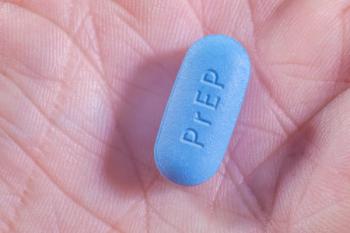
Patients who received information in their native language reported being more likely to understand the information about their medication.

Patients who received information in their native language reported being more likely to understand the information about their medication.

Pharmacy managers must be transparent and should work to establish an environment where people want to trust one another and feel good about doing so.

As a pharmacist, it’s important to consider the benefits of certification for pharmacy technicians.

The COVID-19 pandemic has accelerated the prominence of pharmacies in public health by providing pharmacists the legal authority to perform CLIA-waived testing.

Effectively managing and respecting technicians is a great start but advocating for them helps to ensure the viability and growth of our profession.

In order to handle workflow disruptions, it is essential to train technicians and other staff to incorporate them into the patient care process and to manage paperwork and other related tasks.

Although it may not be feasible in all situations, professional sabbatical leave could be a win-win for both pharmacists and their employers.

Ideas for potential new services are often plentiful, but these ideas must be carefully evaluated in order to select the right one and see it to fruition.

In part 2 of their discussion on COVID-19 vaccine mandates, experts Ned Milenkovich, PharmD, and Ron Lanton III, Esq., discussed how provider status could impact potential legal issues around COVID-19 vaccine mandates.

Pharmacy health-system managers should understand the key components of the drug quality and security act.

iImplementation science is an emerging concept examining the development of services in a way that not only helps ensure their initial execution but also their sustainability over time.

Racial or ethnic discrimination can appear in many ways, even as discrimination against someone based on their accent.

In addition to changing the organization's mission and vision, strategic planning actually helps define the business.

Marketing theory is particularly useful for defining your business and your competitors.

New roles and responsibilities can be passed to pharmacy technicians in order to free up pharmacists’ time, which enables them to be more engaged with their patients and provide more direct patient care.

The requirement to promote a healthy, productive, and safe work environment is borne by all, not just those with a managerial title.

Telemedicine visits with a clinical pharmacist offer many advantages, such as social distancing, flexible scheduling, and the ability to use nonverbal cues to convey understanding.

A majority of pharmacy departments are presently conducting safety huddles within their teams.

Despite their importance, formal performance appraisal systems are often lacking.

Pharmacists who are proactive—in other words, taking account of the environment and being able to foresee health systems and patients’ needs ahead of time—are more effective in promoting practice change.

Health information technology is becoming available an accelerated pace, and it will take time to train individuals on how to effectively employ a new technology and convince them of its merit.

In a national survey, pharmacists reported on the extent to which various services were provided.

Community pharmacy teams can help reduce hospitalizations through the provision of medication reconciliation, which adjudicates discrepancies such as therapeutic omissions, duplications, dosing errors, drug interactions, and unintentional therapeutic changes.

There is ample evidence to suggest that there can be considerable variability in pharmacists’ tenacity to provide comprehensive care to patients.

A study found that 14.4% of customers had sought information prior to visiting a community pharmacy.